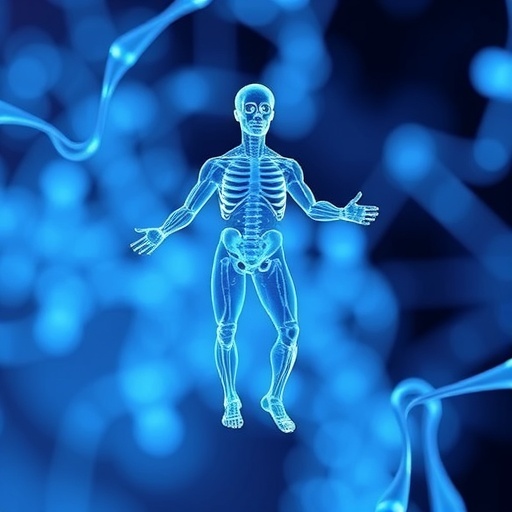Artificial intelligence (AI) has rapidly emerged as one of the most transformative technologies of the 21st century, influencing a multitude of sectors, including biology and medicine. The integration of AI into these fields is not merely a trend; it represents a monumental shift in how researchers and practitioners approach fundamental problems, paving the way for groundbreaking discoveries and innovations. This burgeoning development is exemplified in a recent study by Iskuzhina et al., which elucidates the complex interplay between artificial intelligence and life sciences, showcasing potential applications and implications that could redefine biological research and healthcare practices.
The expansive palette of AI’s applications in biology includes tasks such as data analysis, pattern recognition, and predictive modeling. These capabilities are particularly significant given the sheer volume of biological data generated daily, from genomic sequences to clinical records. In such an environment, traditional analytical methods may falter, overwhelmed by data complexity and scale. The study argues that AI offers a solution, employing sophisticated algorithms to extract meaningful insights from vast datasets, thus enhancing the efficiency and accuracy of biological research.
Additionally, AI’s role in drug discovery is highlighted as a remarkable advancement. Historically, the arduous process of developing new therapeutics has involved extensive trial and error, often extending over years or even decades. However, machine learning algorithms can accelerate this process by predicting drug interactions and potential side effects, allowing researchers to prioritize compounds with the highest likelihood of success. This can lead to not only faster drug development timelines but also significant cost reductions in bringing new medications to market.
Furthermore, the application of AI in personalized medicine is another frontier where its impact is poised to be profound. With AI’s ability to analyze individual genetic data, clinicians can tailor treatments to suit specific patient profiles. This approach stands in stark contrast to the traditional “one-size-fits-all” model, aiming instead to optimize therapeutic efficacy and minimize adverse effects. The study emphasizes that as more genomic and clinical data become available, AI technologies will only become more integral to the practice of personalized medicine.
Moreover, AI’s influence extends beyond just the realms of drug discovery and personalized medicine. In diagnostics, for instance, AI algorithms have demonstrated tremendous prowess in identifying diseases from imaging studies, such as X-rays and MRIs, often matching or surpassing the diagnostic capabilities of seasoned radiologists. This synergy between human expertise and AI’s analytical power embodies a new collaborative paradigm in clinical settings, where AI functions as an invaluable tool, augmenting human decision-making without replacing it.
The implications of AI in healthcare are not without ethical considerations, which the study does not shy away from addressing. As algorithms increasingly inform clinical decisions, issues of bias and transparency become paramount. AI systems are only as good as the data they are trained on, and if that data is skewed or unrepresentative, the outcomes can perpetuate disparities in healthcare. The authors highlight the importance of rigorous validation and continuous monitoring of AI models to mitigate these risks, ensuring that AI contributes positively to health equity and efficacy.
Training healthcare professionals to work in tandem with AI systems represents another essential aspect of integrating this technology into medical practice. The study notes that as AI-driven tools become commonplace, practitioners must be equipped with the skills necessary to interpret AI outputs, incorporating these insights into their clinical workflows. This will require a shift in medical education and ongoing professional development to create a workforce adept at navigating the intersection of biology, medicine, and artificial intelligence.
As we look towards the future, the convergence of AI with biology and medicine seems poised for exponential growth. The study suggests that upcoming technological advancements, such as improved natural language processing and enhanced imaging techniques, will further propel AI’s capabilities in these fields. This evolution is expected not only to refine existing processes but also to unveil new avenues for research and treatment previously unimagined.
The role of interdisciplinary collaboration becomes evident in this intricate landscape. By fostering partnerships among biologists, computer scientists, and healthcare professionals, the study posits that we can harness the full potential of AI applications. Such collaborations will enable the synthesis of domain-specific knowledge with computational expertise, ultimately driving forward innovative solutions to some of biology’s and medicine’s most pressing challenges.
Given the promising avenues opened by AI, it is crucial for researchers, policymakers, and ethical bodies to work in concert. Establishing regulatory frameworks that ensure the responsible use of AI in life sciences is essential to safeguard against misuse while promoting innovation. As AI continues to evolve, continuous dialogue among stakeholders will maximize benefits while addressing inherent concerns, ensuring equitable access to advancements in healthcare.
In conclusion, the comprehensive investigation by Iskuzhina et al. serves as both a celebration of AI’s transformative potential and a call to action for responsible implementation in biology and medicine. The convergence of artificial intelligence and life sciences is not just a passing phase; it is a foundational shift that promises to revolutionize how we understand and interact with biological systems. As we stand on the cusp of a new era defined by AI, it is imperative that we, as a society, approach this technological revolution with enthusiasm tempered by caution, foresight, and an unwavering commitment to ethical practices.
This exciting future beckons as we eagerly await new discoveries, innovative treatments, and enhanced patient outcomes driven by the intelligent capabilities of machines. In the interplay between human ingenuity and artificial systems, we find not only solutions to current problems but a roadmap to the next generation of biological and medical advancements, which may one day lead to healthier lives for all.
Subject of Research: The integration of artificial intelligence in biology and medicine.
Article Title: Artificial intelligence in biology and medicine.
Article References:
Iskuzhina, L., Turaev, Z., Rozhin, A. et al. Artificial intelligence in biology and medicine.
Sci Nat 112, 80 (2025). https://doi.org/10.1007/s00114-025-02029-4
Image Credits: AI Generated
DOI: https://doi.org/10.1007/s00114-025-02029-4
Keywords: Artificial Intelligence, Biology, Medicine, Drug Discovery, Personalized Medicine, Diagnostics, Ethics, Interdisciplinary Collaboration, Health Equity.




